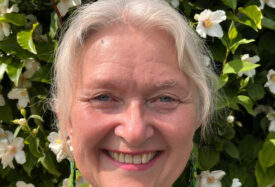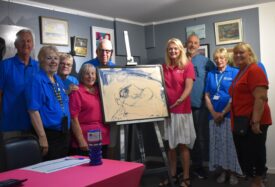Penny praises Pilgrims Hospices as “a place to live, a caring community”
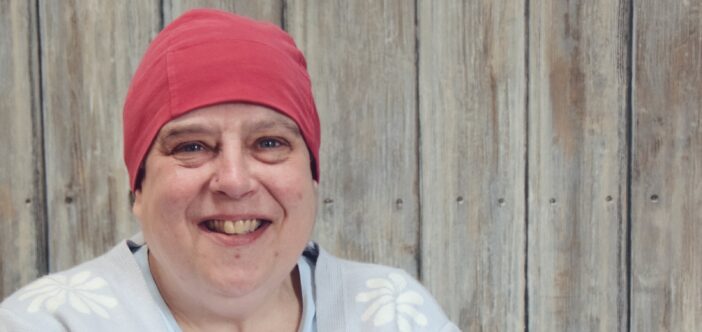
Penny Murphy from Tenterden was diagnosed with colon and liver cancer in 2020 and given 18 months to live; she began treatment and surpassed her initial prognosis.
In January 2023, Penny decided to stop treatment to focus on her quality of life and make the most of the time she has.
Pilgrims Hospices is now supporting Penny to live well in each moment and plan for her future, enabling her to spend more time making precious memories with loved ones.
A former nanny, Penny is described by friends as “beautiful, incredibly funny, silly, adorable, and an absolute ‘one-in-a-million’ lady”. They are currently running a GoFundMe campaign to help Penny tick important goals off her bucket list, including a trip to Italy with her husband, John.
Penny said: “I’d been living with cancer for two and half years before I was referred to Pilgrims. I was so isolated at home. I dreaded the idea of hospice care, but when I arrived for my first holistic assessment, it didn’t feel like a place to die – it is a place to live, a caring community. I was greeted so warmly. The reception staff knew who I was and who I was there to see.
“Pilgrims sorted everything for me, they are so helpful and compassionate. I was able to speak with someone immediately; the whole team is efficient. I met Alison Wiltshire, Community Nursing Team Leader and Palliative Specialist Nurse (PSN), and we discussed my history and sorted out my disability badge, benefits, pain medication and future wishes. It’s the first time since being diagnosed that I’ve felt in control and empowered to make decisions about my care, which is phenomenal.”
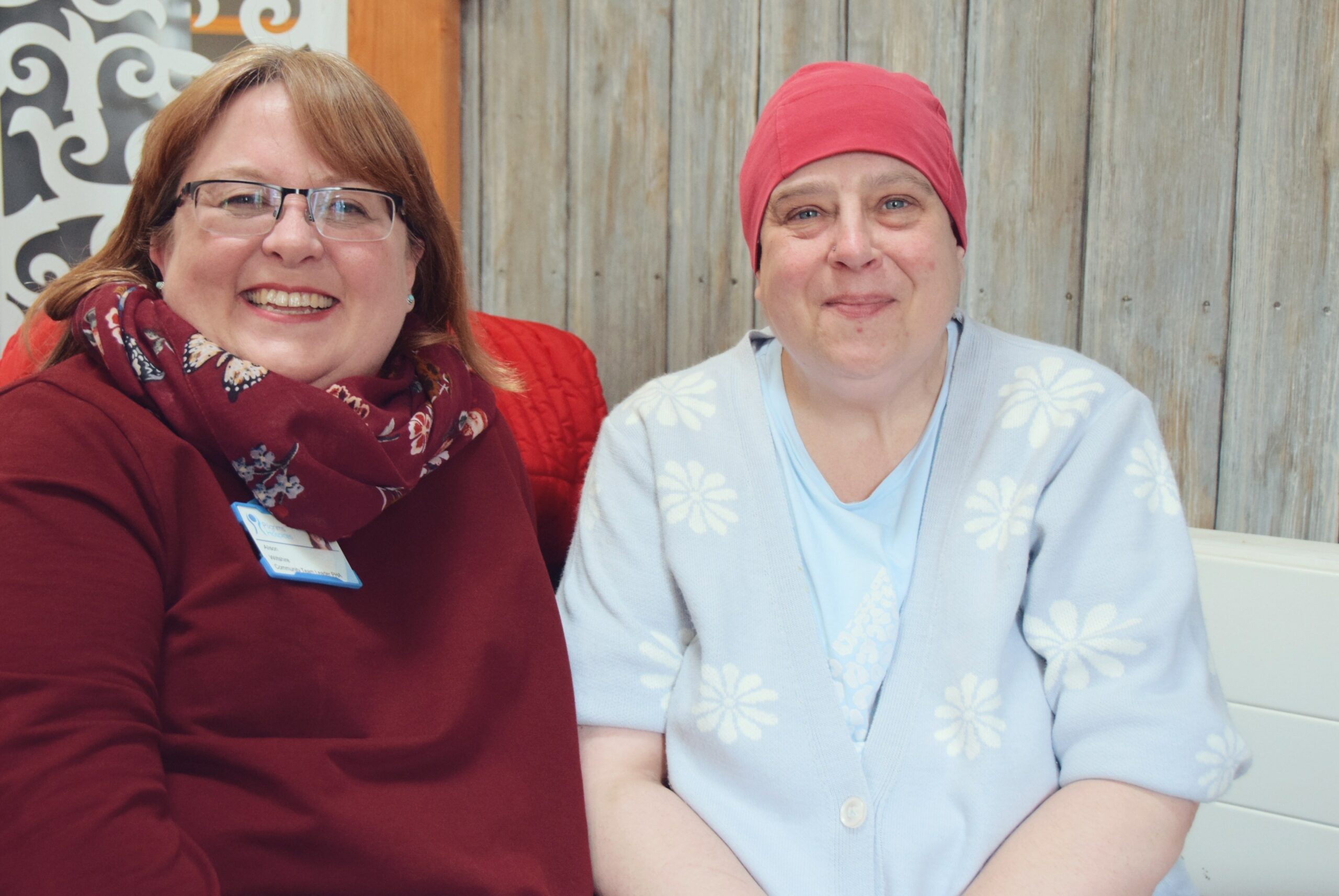
A common perception of palliative care is that it takes place only on hospice wards, but the majority of Pilgrims patients are cared for within the east Kent community. In 2022-23, 2,426 patients have had input from the clinical team – PSNs, doctors and Advanced Clinical Practitioners (ACPs) – in the community, including in patients’ own homes.
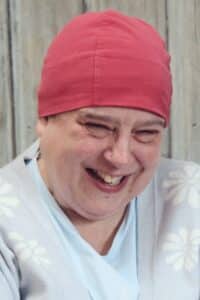
Alison added: “Bringing patients into clinic allows them to discover what a hospice feels like, and can allay fears and anxiety about what hospices are. Having someone like Penny experience our community services and be willing to spread the word to encourage others is just what we need. It helps to dispel myths about hospice care.”
Penny is currently accessing Pilgrims’ spiritual care and complementary therapy services. Her dogs, Ruger and Elsa, can also come to the hospice with her.
She continued: “I’m dying – I’m under no illusion about that – but Pilgrims gives me peace of mind; it’s so reassuring knowing that my future care will be on my terms. I think this is really important.
“To anyone being offered hospice care, I would say: “Go for a visit, talk to team, try it out”. You’ll be surprised how positive it is; it’s nothing at all to be scared of.”

